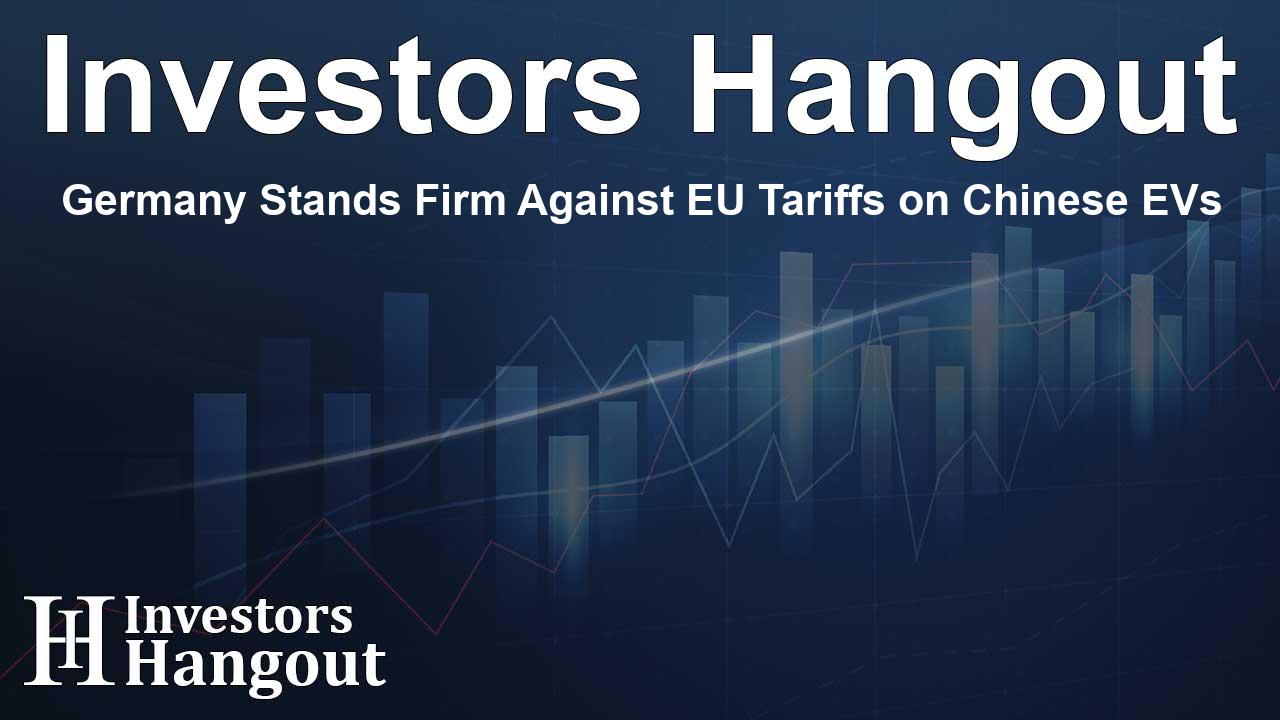Germany Stands Firm Against EU Tariffs on Chinese EVs

Germany's Opposition to EU Tariffs on Chinese Electric Vehicles
Germany is set to take a significant stand against the European Union's proposed tariffs on Chinese electric vehicles. This decision reflects the country's commitment to maintaining a balanced and competitive automotive market within Europe.
The Context of the Decision
In recent discussions, it has been reported that Germany's government officials expressed their intent to vote against these tariffs. This response arises amid ongoing debates regarding trade relations between Europe and China, particularly in the electric vehicle sector. Germany's automotive industry is one of the largest in the world, and the country's economy heavily relies on a thriving automotive market.
Impact on Trade Relations
The introduction of tariffs could have far-reaching consequences not only for Germany but also for the wider European market. Tariffs might lead to higher prices for consumers and potentially slow down the adoption of electric vehicles. Europe has been pushing for an acceleration in the transition to sustainable mobility, and imposing tariffs could hamper this progress. Germany's decision signals a preference for free trade and cooperation over protectionism.
What Lies Ahead for the EV Market
As the market for electric vehicles continues to expand, Germany’s stance could influence other EU member states. The automotive sector is increasingly interconnected, with many countries relying on either German automotive technology or Chinese battery production. Germany's vote may pave the way for discussions that prioritize innovation and sustainability rather than divisive protectionist measures.
Competitive Landscape of Electric Vehicles
With major shifts in consumer preferences towards electric vehicles, Germany's boycott of these tariffs demonstrates the country’s desire to remain competitive. By fostering an environment conducive to innovation, Germany aims to ensure that consumers have access to a variety of options without additional financial burdens imposed by tariffs.
Conclusion: A Forward-Thinking Approach
Germany’s upcoming vote against EU tariffs reflects a progressive approach in the wake of a rapidly changing global automotive landscape. As countries around the world navigate their own paths in fostering sustainable transportation, Germany's actions may set a precedent for others, advocating for open markets and collaboration in the electric vehicle sector.
Frequently Asked Questions
Why is Germany opposing tariffs on Chinese electric vehicles?
Germany is opposing these tariffs to maintain a competitive automotive market and to foster free trade, avoiding higher costs for consumers.
What could be the impact of tariffs on the EV market?
Tariffs could lead to higher prices for electric vehicles, slowing down adoption rates and potentially harming the transition to sustainable transport.
How does this decision affect Germany's automotive industry?
This decision may help Germany's automotive industry stay competitive by ensuring access to a broader range of electric vehicle options at lower prices.
What are the broader implications for EU-China trade relations?
Germany's stance may encourage ongoing dialogue on trade practices, emphasizing innovation and collaboration in the automotive sector.
What is the current state of the electric vehicle market in Europe?
The electric vehicle market in Europe is growing rapidly, with increasing consumer demand and significant investments aimed at boosting infrastructure and production capabilities.
About Investors Hangout
Investors Hangout is a leading online stock forum for financial discussion and learning, offering a wide range of free tools and resources. It draws in traders of all levels, who exchange market knowledge, investigate trading tactics, and keep an eye on industry developments in real time. Featuring financial articles, stock message boards, quotes, charts, company profiles, and live news updates. Through cooperative learning and a wealth of informational resources, it helps users from novices creating their first portfolios to experts honing their techniques. Join Investors Hangout today: https://investorshangout.com/
Disclaimer: The content of this article is solely for general informational purposes only; it does not represent legal, financial, or investment advice. Investors Hangout does not offer financial advice; the author is not a licensed financial advisor. Consult a qualified advisor before making any financial or investment decisions based on this article. The author's interpretation of publicly available data shapes the opinions presented here; as a result, they should not be taken as advice to purchase, sell, or hold any securities mentioned or any other investments. The author does not guarantee the accuracy, completeness, or timeliness of any material, providing it "as is." Information and market conditions may change; past performance is not indicative of future outcomes. If any of the material offered here is inaccurate, please contact us for corrections.